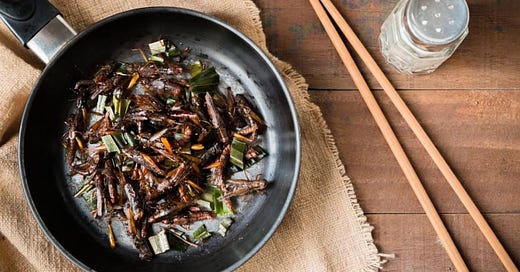FAQ: Craving nasi lemak topped with crickets? What you need to know about eating insects
Published on ChannelNewsAsia.com
Singapore's approval of 16 insect species as food has generated considerable buzz on social media. Crickets, silkworms, and the Western honey bee are among the insects that will soon appear on menus and in stores.
TLDR version of the original article on Channel NewsAsia platform:
Allergies and Consumption Safety
Consumers with shellfish and crustacean allergies may also be allergic to insects due to similar allergenic proteins. The Singapore Food Agency (SFA) advises checking product labels for ingredients.
Halal Status
The Office of the Mufti of the Islamic Religious Council of Singapore (MUIS) has deemed insect-derived food products generally permissible unless harmful or specifically prohibited. The Fatwa Committee of Singapore has ruled that protein from insects is halal.
Nutritional Value
Insects are rich in protein, vitamins, and beneficial fatty acids. A 100g serving of crickets contains about 65g of protein, surpassing chicken breast. They also offer vitamins like B12 and minerals such as iron and zinc. Health-conscious consumers can use insect-based protein powders in smoothies or bars.
Environmental Benefits
Insects are a sustainable food source, requiring less land, water, and feed compared to traditional livestock. Their farming has a lower environmental footprint, aiding greener food systems.
Culinary Applications and Safety
Insects can be prepared in various ways, such as roasting, baking, or air frying, to retain their nutritional value. SFA guidelines ensure insects are farmed and processed free from contaminants. Consumers are advised to purchase from certified suppliers.
Taste and Cultural Shift
While some Singaporeans are hesitant due to the "ick factor," others find insects tasty, with flavours compared to seafood and textures ranging from crunchy to nutty. Increasing familiarity and proper labelling may help shift cultural attitudes, potentially integrating insects into popular local dishes.




